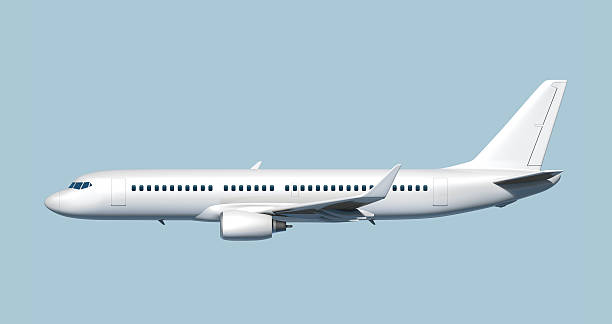Nigeria’s aviation industry is at a pivotal moment. As Africa’s largest economy and one of the continent’s most populous nations, the demand for air travel within and outside the country is surging. Over the past decade, this sector has faced significant challenges—from infrastructure gaps to regulatory issues—yet recent innovations and policy reforms have begun to steer the industry toward a promising future.
With the government’s renewed focus on developing aviation infrastructure and implementing regulatory changes, Nigeria is poised to become a key player in the African aviation landscape. Furthermore, emerging technological advancements are reshaping how airlines operate, how passengers experience air travel, and how airports are managed.
A Push for Modernization
One of the most significant shifts in Nigeria’s aviation industry is the government’s strategic push for modernization. The Nigerian government, through the Ministry of Aviation and the Nigerian Civil Aviation Authority (NCAA), has embarked on extensive reforms aimed at improving safety, enhancing infrastructure, and ensuring greater competitiveness for Nigerian airlines.
One notable reform is the push to concession several airports in the country, including the Murtala Muhammed International Airport in Lagos and Nnamdi Azikiwe International Airport in Abuja. By involving private sector players through public-private partnerships (PPP), the government hopes to modernize and manage these airports efficiently. This reform is expected to improve passenger experience, reduce operational bottlenecks, and boost overall service quality.
Additionally, the Nigerian government is focused on upgrading aviation safety and security standards, aligning with international aviation regulations. This move is crucial in building investor confidence and encouraging more international airlines to operate in Nigerian airspace.
The Role of Technology in the Skyward Shift
Technology is playing a crucial role in revolutionizing Nigeria’s aviation industry. Airlines are increasingly adopting cutting-edge digital solutions to streamline operations and enhance passenger experience. From online booking systems to automated check-in kiosks, digital transformation is making air travel more accessible and convenient for Nigerians.
One notable advancement is the adoption of digital ticketing platforms and mobile apps, which have simplified the ticket purchasing process, allowing travelers to book flights, check in, and receive real-time updates on their phones. These innovations not only enhance passenger convenience but also help airlines optimize their operations, reducing delays and minimizing costs.
In addition to digital transformation, Nigerian airports are beginning to integrate technologies like biometric identification systems for faster immigration processing and enhanced security. The deployment of these systems will improve the efficiency of airport operations and help reduce long queues, a common complaint among travelers.
Policy Reforms Bolstering Growth
The Nigerian aviation industry has long been burdened by regulatory inefficiencies, safety concerns, and poor infrastructure. However, policy reforms introduced in recent years are addressing these long-standing challenges. The introduction of the Civil Aviation Policy has set the framework for enhancing air transport safety, promoting competition, and developing sustainable air travel infrastructure.
These reforms also aim to promote the growth of local airlines, offering them incentives to compete with international carriers. Nigerian airlines, including Arik Air, Air Peace, and Dana Air, have been encouraged to increase their fleet size and improve their service offerings, both on domestic and international routes. The government has also provided financial relief packages for local airlines to help them recover from the effects of the COVID-19 pandemic and the fluctuating price of aviation fuel.
Moreover, the new policies seek to make air travel more affordable and accessible. By reducing taxes and charges for airlines, the government is working to lower the cost of air travel, making it more affordable for Nigeria’s growing middle class. As more Nigerians begin to travel by air, the industry is expected to experience a significant boost in passenger traffic.
Addressing the Infrastructure Gap
While innovations and policy reforms are crucial, Nigeria’s aviation sector still faces an enormous infrastructure gap that needs to be addressed. The country’s major airports, especially in Lagos and Abuja, suffer from aging facilities, inefficient processes, and limited capacity. This has led to overcrowding, frequent delays, and a less-than-optimal passenger experience.
Addressing these infrastructure challenges will require massive investments. The government’s ongoing airport concession program is a step in the right direction, as it allows private investors to participate in the financing, operation, and management of airport terminals. However, more extensive efforts are needed to upgrade runways, expand terminals, and ensure that smaller airports across the country are operational and well-maintained.
The Path Forward: Opportunities and Challenges
As Nigeria’s aviation industry continues its skyward shift, several opportunities lie ahead. The African Continental Free Trade Area (AfCFTA) agreement presents a significant opportunity for Nigerian airlines to tap into a broader market, as air travel within Africa becomes more integrated. Nigerian airlines have the potential to position themselves as major carriers within the West African region and beyond.
However, challenges remain. Rising operational costs, particularly due to the fluctuating price of aviation fuel, remain a significant concern for airlines. The high cost of maintaining aircraft, coupled with the weak naira, has made it difficult for Nigerian airlines to remain profitable. Furthermore, inconsistent power supply and inadequate infrastructure continue to hinder the smooth operation of airports.
Nigeria’s aviation industry is undergoing a transformative period marked by both challenges and opportunities. Innovations in technology, coupled with the government’s policy reforms, have set the stage for growth. By focusing on upgrading infrastructure, improving safety standards, and creating a more competitive environment for local airlines, Nigeria is well on its way to becoming a leading aviation hub in Africa.
The skyward shift is evident, but sustaining this momentum will require continued investment, innovation, and collaboration between the public and private sectors. As the industry grows, the benefits will extend far beyond the aviation sector, contributing to job creation, tourism, and overall economic development in Nigeria.
Speaking on this issue, an aviation expert, Ifedayo Ikotun said; “The Nigerian aviation industry is on the cusp of significant transformation, and it’s exciting to witness the innovations and policy reforms that are shaping its future. As someone who has closely followed the sector, I believe the ongoing changes are crucial for enhancing Nigeria’s role as a key player in regional and global air travel. However, while we see progress, there are still areas that need focused attention.”
First, he stressed that, “ttechnology is revolutionizing the way airports and airlines operate, from the introduction of biometric systems to the digitalization of passenger services. This shift is long overdue. We now see airlines adopting digital platforms for ticketing, making the entire process of booking and traveling more seamless. These innovations not only improve passenger experience but also enhance operational efficiency, reducing delays and optimizing costs.”
His words: “however, innovation alone isn’t enough. Infrastructure has to match the pace of these technological advancements. Major airports like Lagos and Abuja still face significant issues related to congestion and outdated facilities. The government’s decision to concession these airports is a positive step, but more targeted investments in capacity expansion and modernization of smaller airports are crucial. Our regional airports, which have the potential to serve as hubs for domestic travel, remain underdeveloped, limiting the reach of air transport within Nigeria.”
On the policy side, he stressed that, “we’ve seen commendable efforts to create a more competitive and safety-driven environment for both local and international airlines. But these reforms need to address high operational costs, particularly the rising cost of aviation fuel and the high taxes that burden local carriers. If these issues are resolved, Nigerian airlines will be better equipped to compete on a global stage and expand their routes, especially within Africa where intra-regional connectivity is vital.”
“Ultimately, the future of Nigeria’s aviation industry depends on balancing innovation, policy, and infrastructure development. If these elements are aligned effectively, the country has the potential to become a leading aviation hub, not just in West Africa, but across the continent.” He added.








